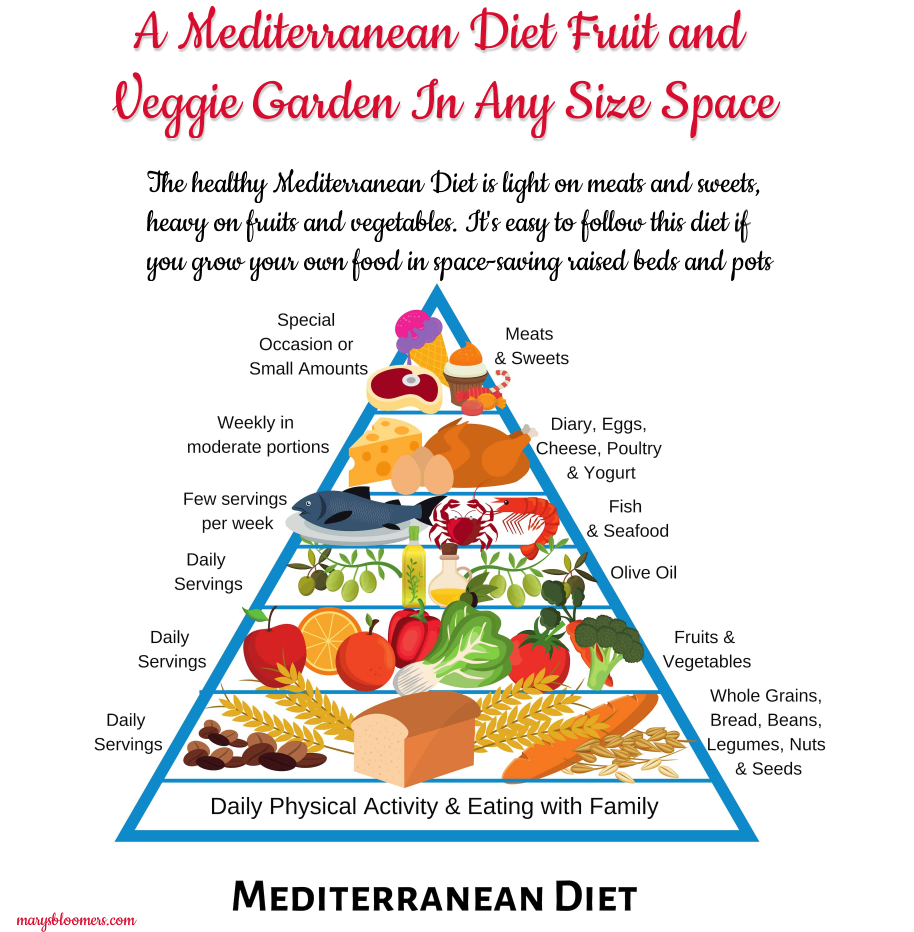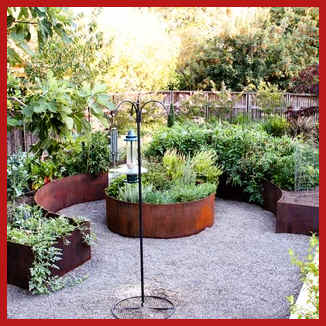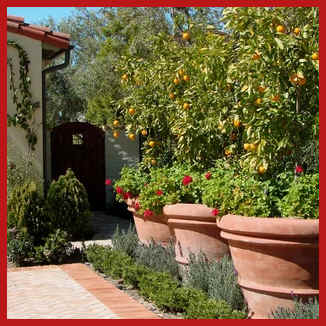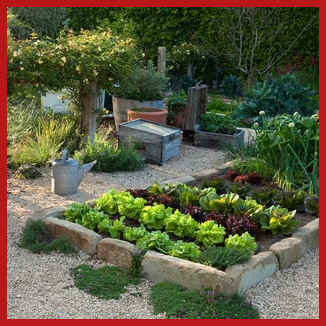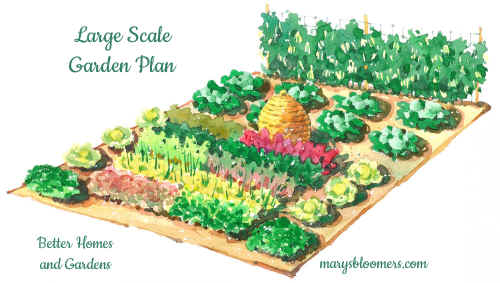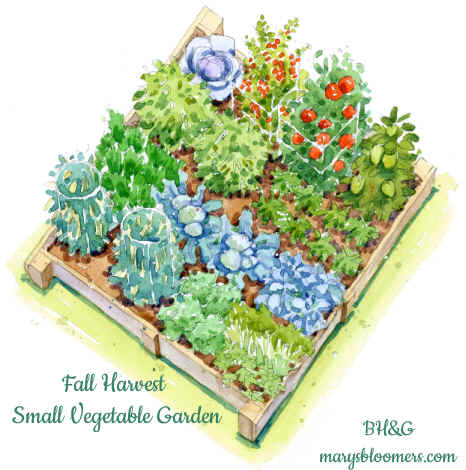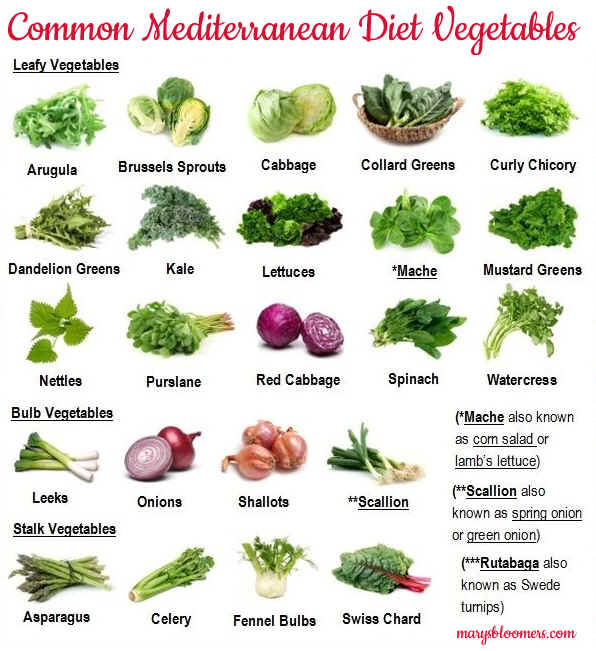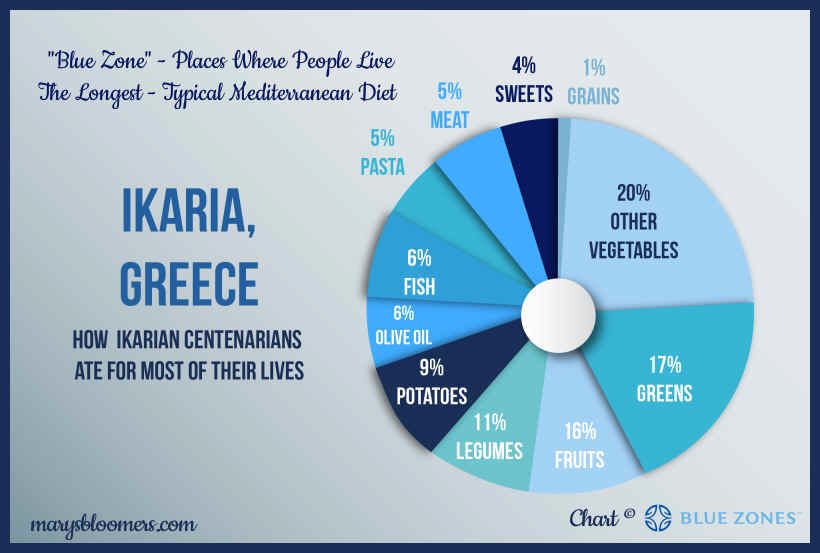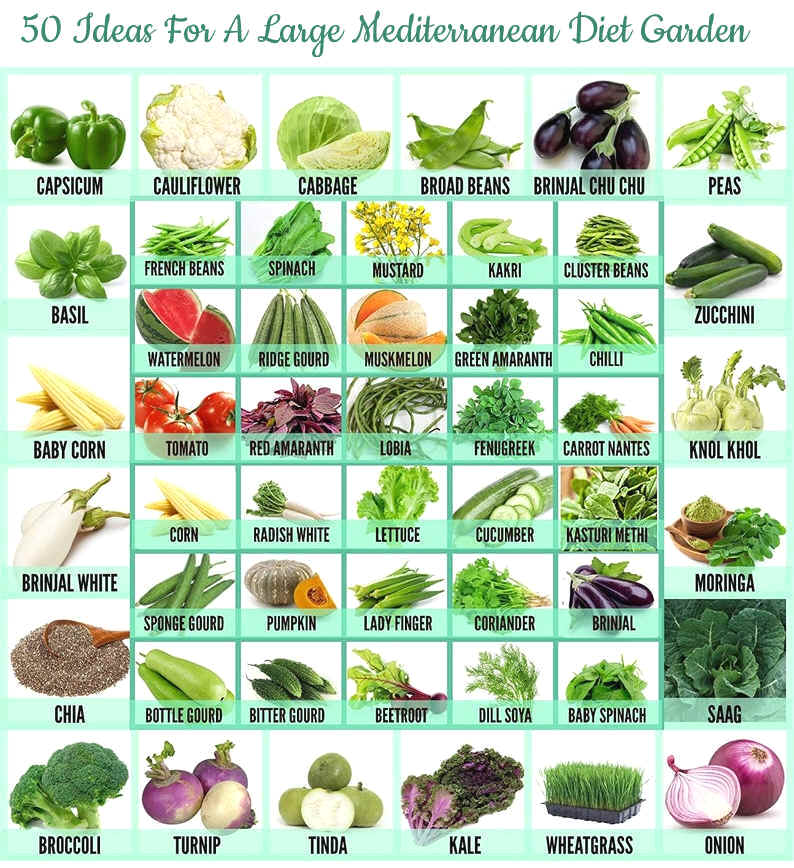The Mediterranean diet is based on the traditional foods that people in
Italy, Spain and Greece eat. Design a vegetable garden to supply
yourself with tons of the food this diet is based upon. The diet focuses
on daily servings of fruits and vegetables. The more, the healthier.
Researchers noted that people who
live in the Mediterranean regions are exceptionally healthy compared to
Americans, and had a low risk of many lifestyle diseases. Numerous
studies have now shown that the Mediterranean diet can help with weight
loss, and help prevent heart attacks, strokes, type 2 diabetes and
premature death. It has also been found to be a better option than the
standard low fat/low calorie diet.
People around the Mediterranean have
traditionally follow a diet that’s rich in plant-based foods,
including fruits, vegetables, whole grains, breads, legumes, potatoes,
nuts, and seeds. The main dietary fat is extra virgin olive oil, and
people also consume moderate amounts of red wine, fish, poultry, dairy,
and eggs. Red meat plays only a small part in the Mediterranean diet.
Several randomized controlled
trials, which are reliable and effective methods of research, have
looked at the possible benefits of this diet. Most people who joined
these studies had health problems, including diabetes, metabolic
syndrome, or a high risk of heart disease. Most of the studies looked at
common health markers, such as weight, heart disease risk factors, and
markers for diabetes. Some larger studies also looked at rates of heart
attacks and death. None of
the diets in the research trials involved reducing calories or
increasing physical activity.
There is no right way to follow the
Mediterranean diet, as there are many countries around the Mediterranean
sea, and people in different areas may have eaten different fruits and
vegetables, in differing amounts. But the basics are the same - very
little meat and sugar, and not very often, and lots of vegetables and
fruit. It's a pretty easy diet to figure out. If you grow your own food
and herbs in your garden, you'll find it more enjoyable than eating
store-bought produce, and it's easier to stay on this healthy course if
you can Pick and Go. You'll also get some beneficial exercise and time
in the sunshine.
READ LABELS on store-bought foods
and produce. Grow Your Own, or Buy Local.
- Eat: Non-GMO
organic vegetables, fruits, nuts, seeds, legumes, potatoes, whole
grains, breads, herbs, spices, fish, seafood and extra virgin
olive oil. Organic is best, and it's not a mystery word if you're
a gardener - it just means that your food is thoughtfully and
sustainably grown, not grown with chemical pesticides,
fertilizers, treated soils, grown from genetically modified seed,
sitting around in stores with waxy coatings, filled with fillers
additives, or artificially colored.
- Eat in moderation:
Poultry, eggs, cheese and Greek yogurt.
- Eat only rarely:
Red meat.
Don't Eat
Avoid these unhealthy foods and
ingredients:
- Don’t eat:
Sugar-sweetened cereals, sweet desserts high in sugar and with
empty calories, foods with added sugars, preservatives, processed
meat, refined grains, refined oils and other highly-processed
foods.
- Refined grains:
White bread, pasta made with refined wheat, etc.
- Trans fats:
Found in margarines, certain oils, and various processed and fried
foods.
- Refined oils:
Soybean oil, canola oil, cottonseed oil and others. Stick with
healthy olive oil in salads, dips, sauces and in toppings.
- Processed meat:
Do not indulge in processed sausages, sliced deli meat or mystery
meat hot dogs. These have sugars, cholesterol, potential
by-products and a lot of sodium.
- Designer diet foods and
highly processed foods: Avoid anything labeled
“low-fat” or “diet” that looks like it was processed in a
factory, or deceptively advertised as healthy and good for you.
During the summer months, you can
grow a big harvest of fresh, non-gmo and pesticide free fruits,
vegetables and herbs to incorporate in your diet. Most can be canned,
frozen, or dehydrated to supply you with healthy eats throughout the
winter. Just like we did with the original suburban Victory
Gardens. Today, we have so many ways and tools for
preserving, that make it less of a chore and more of a goal. Raised
beds and big pots, hanging
baskets, vertical growing,
balcony, terrace and patio gardening, indoor gardening with grow lights,
indoor and outdoor window boxes, Fruit
Trees espaliered or growing
in pots, edible
landscaping, rooftop gardens,
and a whole lot more ways and means to grow our food easily in any size
space. You can save lots of space using varieties of "patio"
vegetables. Lots of dwarf and trailing tomato varieties and fruits are
easily grown and are quite ornamental on a patio, terrace, balcony or
deck.. Bush beans, mini cucumbers, eggplants and melons are also
available for those with space constrictions. There are even mini
pumpkins and squash. If you have the room, you can add a beautiful
garden arch and grow table grapes.
While you're here, be sure to grab
some of our free garden design plans that will help you pick
a perfect design for your gardens. Or design a Victory
Garden planted with fruits and veggies for your
Mediterranean Diet.
Many fruit and vegetable varieties
are perennial - they will sleep in winter, and return in the spring, and
can be the backbone of your summer Mediterranean food gardens. An indoor
windowsill can be a garden of herbs in winter. Big pots can contain
dwarf fruit trees and fruit shrubs, tomato plants, peppers, peas and
beans. Raised beds can be filled with anything you like - lettuces,
kale, spinach, baby broccoli, cauliflower. Scallions, asparagus, chives,
garlic chives, oregano and many herbs can be grown with just about any
method, and they are perennial.
There are many hardy fruits, like
strawberries, mulberries, blackberries, raspberries and blueberries that
return every year. Most can grow vertically or in hanging pots, so it
would be easy to grow these in small spaces, and on trellises or staked.
Several fruit tree varieties are dwarf - these bear full size fruit on
little trees. Most fruits are shrubs, and can be grown on patios and
decks. Lots of dwarf varieties of these, as well.
Here are some ideas of Mediterranean
style veggie gardens that can be quite ornamental.
Feel free to download our free garden design
plans.
|
The garden plans shown
below for download include an illustrated version of the
planted garden, a detailed layout
diagram, a list of recommended plants for the garden shown, and
complete instructions for installing the garden.
You can substitute veggies you love for those that are
recommended in the designs.
Download these .pdf's by clicking the pics below.
|
|
Here's
a list of Italian mini orchard fruits
Growing a Small Space Orchard in your
Backyard
Latino Vegetable Gardens
Potagers - Kitchen Gardens
Italian Gardens
Salad Bar Gardens
|
You should base your diet on healthy,
unprocessed Mediterranean and other plant foods, grow or farm whatever
veggies, fruits and poultry you can, and buy what you can't grow at
Mediterranean greengrocers and fresh produce stands, whole food or natural
food groceries, and farmer's markets. Meat is listed here only as part of
the make-up of a total diet. You'll eat very little of it.
Examples below are of healthy veggies
for the Mediterranean Diet, and many of them can grow in your garden.
Seeds and nuts, etc. added for diet reference. If you have nut trees,
that's awesome. Grow what you love to eat. Preserve or freeze your fruits
and home-process your veggies without additives to have for the cold
months. Grow an indoor salad garden in winter for fresh greens and herbs.
The diet is mostly about good-sized daily servings of veggies and fruits.
- Vegetables: Leafy
greens, Mesclun mix, escarole, cabbage, tomatoes, broccoli, broccoli
rabe, broccolini, kale, garlic, shallots, baby spinach, onions,
cauliflower, baby carrots, baby or Japanese mini eggplants, avocado,
Brussels sprouts, baby cucumbers, mini peppers, bell peppers, frying
peppers, artichokes, leeks, radishes, fennel. Add
any vegetables you like to eat fresh, as a side, or in a salad to your
garden.
- Fruits: Grow or
buy apples, lemons, oranges, pears, blackberries, mulberries,
pomegranate, blueberries, mango, papaya, raspberries, figs,
strawberries, grapes, dates, figs, watermelons, nectarines,
cantaloupe, peaches, apricots. Almost all fruits can be grown in your
garden. A dwarf, potted lemon or fig tree incorporated into your
garden is a beautiful focal point.
- Nuts and seeds:
Almonds, walnuts, macadamia nuts, hazelnuts, cashews, pecans,
sunflower seeds, pumpkin seeds, pignoli. A plant-based
protein sources high in good and unsaturated fats, peanuts and peanut
butter are a natural fit
- Legumes: Pole or
Bush Beans, sweet peas, sugar snap peas, snow peas, lentils, split
peas, peanuts, chickpeas, fava beans, butter beans, lima beans, etc.
Avoid canned baked beans. Way too much sugar - make your own in a slow
cooker from dried beans, and use honey, brown or turbinado sugar as a
sweetener. One of my favorite veggie sides.
- Tubers: Potatoes,
sweet potatoes, turnips, rutabaga, yams, parsnips, beets.
- Whole grains:
Whole oats, brown rice, rye, barley, corn, buckwheat, whole wheat,
whole-grain bread and pasta.
- Fish and seafood:
Salmon, anchovies, sardines, trout, tuna, mackerel, shrimp, oysters,
clams, crab, mussels.
- Poultry: Chicken,
duck, turkey
- Eggs: Chicken,
quail and duck eggs.
- Dairy: Cheese,
Greek yogurt, goat's milk, goat cheeses, feta, ricotta, low fat
mozzarella, provolone, etc. Avoid processed and heavily salted
cheeses.
- Herbs and spices:
Garlic, oregano, basil, mint, rosemary, sage, nutmeg, cinnamon,
pepper, etc. Use cinnamon, turbinado sugar, stevia and honey as
sweeteners, if needed. Stevia can be grown in your garden as a
sweetener for teas and baked goods.
- Healthy Fats:
Extra virgin olive oil, olives, avocados and avocado oil.
Olive Oil - Research shows that people who follow a high-olive-oil
diet had higher HDL cholesterol (the good one), their ratio of total
cholesterol to HDL cholesterol had improved, and their triglyceride
levels had also improved.
Beverages
Water should be your go-to beverage on
a Mediterranean diet.
Avoid flavored waters with
preservatives or added sugars. Unflavored sparkling or mineral water is
allowed.
This diet also includes moderate
amounts of red wine that's been proven to be beneficial for your heart and
lowers bad cholestrol - about 1-2 glasses per day. This is optional, and
wine should be avoided by anyone who suffers from alcoholism or has
problems controlling their consumption of alcohol. Coffee and tea are
allowed, but avoid sugar-sweetened beverages and fruit juices, which are
very high in sugar. Grow an Herbal
Tea Garden for making your own herbal teas and flavorings.
There is not just one defined type of
Mediterranean diet. This is a method of eating that is rich in healthy
plant foods and low in animal foods, with more of the allowable fish and
seafood. Those on the high-olive-oil diet had higher HDL cholesterol (the
good stuff), their ratio of total cholesterol to HDL cholesterol had
improved, and their triglyceride levels had also improved.
Research and Conclusions
The PREDIMED Study - This large
study involved 7,447 individuals with a high risk of heart disease.
For almost 5 years, the participants
followed one of three different diets:
- a Mediterranean diet with added
extra virgin olive oil
- a Mediterranean diet with added
nuts
- a low fat diet control group
The studies looked at the diet’s
effect on different risk factors and end points.
Results. The risk of
combined heart attack, stroke, and death from heart disease was
lower by 31% in the Mediterranean
Diet + Olive Oil group, and 28% in the Mediterranean + Nuts group than the
control group.
Conclusions - A
Mediterranean diet with either olive oil or nuts may reduce the combined
risk of stroke, heart attack, and death from heart disease. A
Mediterranean diet supplemented with nuts may help reverse metabolic
syndrome.
Follow-Ups
To PREDIMED
Study- Effects of Mediterranian diets on disease
The Journal of
the American Medical Association, 2004
Details. In this
study, 180 people with metabolic syndrome followed either a Mediterranean
diet or low fat diet for 2.5 years.
Results. At the end
of the study, 44% of patients in the Mediterranean diet group still had
metabolic syndrome, compared with 86% in the control group. The
Mediterranean diet group also showed improvements in other risk factors.
Conclusion - Inflammatory
markers and insulin resistance decreased significantly in the
Mediterranean diet group. A Mediterranean diet appears to help reduce
metabolic syndrome and other cardiovascular risk factors.
The New England
Journal of Medicine, 2008. Weight Loss and diabetes.
Details. In this
study, 322 people with obesity followed either a calorie-restricted low
fat diet, calorie-restricted Mediterranean diet, or an unrestricted low
carb diet.
Results. The low fat
group lost 6.4 pounds, the low carb group lost 10.3 pounds, and the
Mediterranean diet group lost 9.7 pounds. In those with diabetes, blood
glucose and insulin levels improved on the Mediterranean diet, compared
with the low fat diet.
Conclusion. A
Mediterranean diet may be more effective than a low fat diet for weight
loss and managing diabetes.
Annals of
Internal Medicine, 2009.
In this study, 215 people with
overweight who had recently received a diagnosis of type 2 diabetes
followed either a low carb Mediterranean diet or a low fat diet for 4
years.
Results. After 4
years, 44% of the Mediterranean diet group and 70% of the low fat diet
group needed treatment with medication.
The Mediterranean diet group had more favorable changes in glycemic
control and heart disease risk factors.
Conclusion - A low
carb Mediterranean diet may delay or prevent the need for drug therapy in
people who are newly diagnosed with type 2 diabetes.
Metabolic syndrome
and type 2 diabetes
- Several studies show that The Mediterranean diet
appears to be an effective option for people with type 2 diabetes.
- The PREDIMED study showed that a
Mediterranean diet with nuts helped 13.7% of people with metabolic
syndrome reverse their condition.
- Another paper from the same study
showed that the Mediterranean diet reduced the risk of developing
type 2 diabetes by 52% (
1.4Trusted Source
).
Carbs in the Mediterranean diet are good carbs
from plant-based, minimally-processed carbohydrate-containing foods like
vegetables, fruits, legumes, beans, nuts, seeds and whole grains. Whole,
single-ingredient food choices and meal creations based primarily on
greens and fruits are key to good health. There are lots of
out-of-the-ordinary varieties of veggies and healthy seeds to choose
from. Lots can be found as dwarf varieties, so that you can squeeze a
lot of plants into your garden beds and raised beds. Don't forget, lots
of plants, like tomatoes, can be grown in pots on patios, balconies,
windowboxes and
decks.
Make it exciting by growing new or unique
veggies, like those in the chart below. The veggies don't have to be
Mediterranean, the diet is the healthy Mediterranean style of eating.
Design
An Ornamental Mediterranean Garden in your backyard,, on Patios, Terraces
and in Courtyards-->
|
Detailed
Site Directory-->
Quick
Links
Content, graphics,
photos and design ©2020 marysbloomers.com
All rights reserved
|
